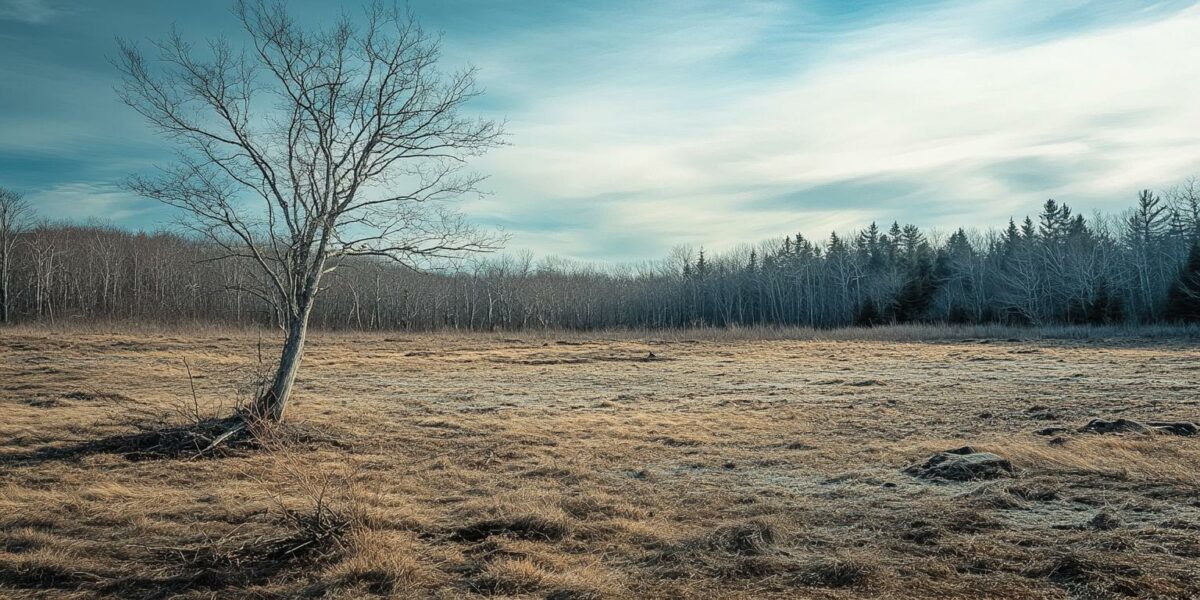Unveiling the Detrimental Impact of Warmer Winters
Climate change is transforming winters in Maine, and the changes are far from beneficial. Winters are now 5 degrees warmer compared to a century ago, leading to a destabilization of air masses and more weather extremes. The anticipated “heating bill savings” are negated by cold snaps that inflate energy costs.
Economically, the consequences are severe. The state’s winter-based economy and tourism, valued at $68 million in 2022, are suffering. Shorter ski seasons, early ice outs, and lack of snow for snowmobiling are impacting tourism, especially in rural areas. This shift threatens jobs and local businesses.
Moreover, the lack of snow affects water reserves. Snowmelt contributes to lakes and reservoirs, so less snow means starting spring with a water deficit. This impacts natural cycles, fishing, farming, and increases fire risks. The impact on Maine’s ecosystem is profound and multifaceted.
Ultimately, the changing climate doesn’t guarantee a consistent warming pattern. Instead, it brings more severe winter storms and extratropical storms. The notion of “warmer winters” as a positive is misleading and oversimplified, ignoring the broader negative consequences.
The Misconception of Warmer Winters
The belief that warmer winters are beneficial overlooks critical factors. Extreme cold snaps can still occur, causing spikes in heating costs and straining resources. These unpredictable weather patterns make it difficult for residents to plan and manage their energy needs effectively.
The economic repercussions extend to multiple sectors. Winter sports and activities, crucial for Maine’s tourism, are experiencing shorter seasons.
- Ski resorts face financial losses due to reduced snowfall.
- Snowmobile trails remain unused, impacting local businesses.
- Ice fishing seasons are shortened, affecting both hobbyists and related industries.
These changes translate to significant economic downturns. Local economies that rely on winter tourism are particularly vulnerable, as they struggle to adapt to the new climate reality. The ripple effect on jobs and income is substantial.
Additionally, the environmental impact is undeniable. With less snowpack, spring water levels are lower, affecting agriculture and wildlife. The interconnected nature of these systems means that one change can have cascading effects, disrupting the balance of the ecosystem.
Reevaluating Perceived Benefits
It is crucial to reassess the perceived benefits of climate change. The idea of reduced snow as a positive is flawed. Snow plays a vital role in maintaining water cycles and supporting ecosystems. Its absence leads to drought conditions and increased fire risks, threatening both nature and human livelihoods.
The notion of avoiding snow shoveling may seem appealing, but it comes at a cost. The loss of snow reserves means less water for spring and summer, impacting everything from drinking water supplies to agricultural productivity. The consequences are far-reaching.
Furthermore, the increase in severe weather events due to climate change poses additional challenges. Nor’easters and other storms become more frequent and intense, causing damage and requiring significant resources for recovery and mitigation efforts.
In conclusion, while some may see warmer winters as a relief, the broader implications reveal a troubling picture. The negative impacts on Maine’s economy, environment, and overall quality of life outweigh any perceived short-term benefits. Addressing these challenges requires acknowledging the full scope of climate change’s effects.
The Reality of Climate Change in Maine
Accepting the harsh truths about climate change is essential for preparing and adapting. Maine’s changing climate is not a boon but a significant challenge that demands attention. The impact on winter tourism alone underscores the need for proactive measures.
Organizations like the University of Maine and NOAA provide resources to educate and prepare residents for these changes. Understanding the science behind climate change is crucial for developing effective adaptation strategies and mitigating negative impacts.
Ignoring these realities for the sake of positivity does a disservice to the public. The focus should be on realistic assessments and practical solutions that address the root causes and effects of climate change. Only then can communities hope to navigate this new landscape successfully.
Ultimately, the truth about climate change is stark and unavoidable. Acknowledging the negative impacts, particularly in regions like Maine, is the first step towards addressing the challenges and working towards a sustainable future. The stakes are high, and the time for action is now.



nora
Very informative post. It’s scary to think how interconnected our ecosystem and economy are.
Connor_Elysium
Yikes! Reduced snowfall affecting water reserves sounds like a nightmare for farmers. 😢
sebastian
Can individuals in Maine do anything to help reduce the impact of climate change on their local environment?
gingertranquility
Great article! But I wonder, are there any positive aspects to these warmer winters that were overlooked?
emilyprism1
I had no idea warmer winters could be so damaging! This is really eye-opening.
abigailstardust
Is there any hope for the winter tourism industry in Maine, or are these losses irreversible?
John
What are the state officials doing to mitigate these economic and environmental impacts?
Chase
Thanks for sharing this important information. It’s crucial for everyone to understand the real impact of climate change. 🌍
LeoNebulae1
Wow, this is really alarming! How can local businesses in Maine adapt to these changes?